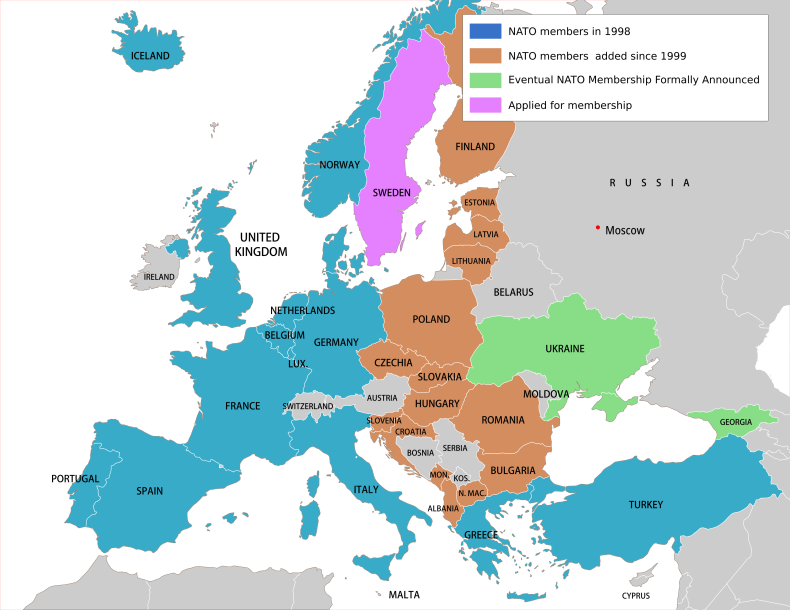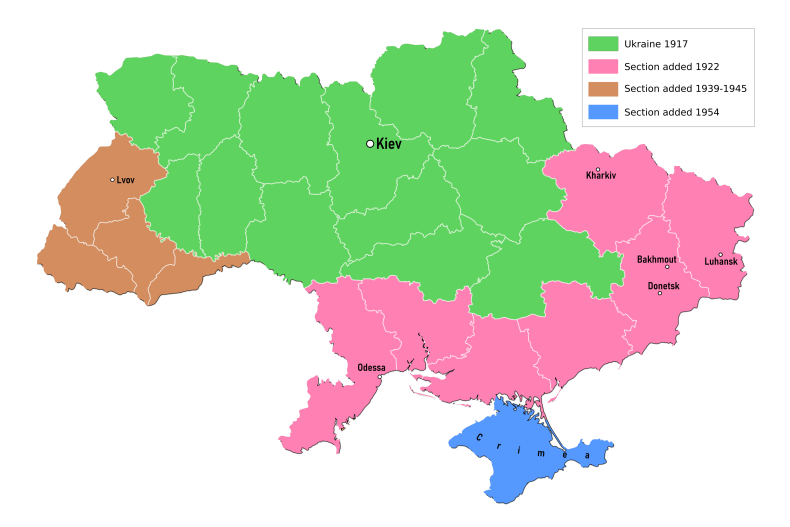Time running out for negotiated settlement in Ukraine Analysis by Newsweek
Newsweek has published an article arguing that the West will need to dismantle its economic sanctions regime, which in any event has inflicted more pain on Europe than Russia. Caliber.Az reprints the article.
Mick Jagger has inadvertently offered Ukrainian President Volodymyr Zelenskyy some very sound advice:
You can't always get what you want,
But if you try sometimes, you just might find,
You get what you need.
Right now, what the Ukrainian people need is peace, security, and economic reconstruction. None of this can be achieved by prolonging an unwinnable war and time is fast running out for a balanced, negotiated settlement.
Victory in the First World War, Second World War and American Civil War was not decided by which army had the best generals or bravest soldiers. Those wars were won by the side with the largest population and strongest industrial base. That will probably be true in this war as well. The success of Ukraine's planned offensive remains problematic and a failure will leave Kyiv with a much weakened negotiating position.
NATO's unreserved "as long as it takes" support for Ukraine is politically unsustainable. The war is being financed not by some abstract entity called NATO, but by Western taxpayers, real people whose incomes and living standards are being negatively affected. American taxpayers will not indefinitely pay the pensions of retired Ukrainian civil servants, especially when Congress refuses to appoint an special inspector general to see where their money is going. In Germany and Italy, there have already been large anti-war demonstrations where protesters burned Ukrainian flags.
If Russia is defeated, President Vladimir Putin will not survive politically, and may not survive physically. The more he fears losing the war, the more he will escalate. After successfully defusing the Cuban Missile Crisis, President John Kennedy warned against ever again forcing Russia to choose between national humiliation and nuclear war. We should heed his advice.
Meanwhile, the war is rapidly depleting NATO's own weapons stocks, fostering a dangerous alliance between Russia and China and costing the West support in the global south. In Ukraine itself, the number of homeless, widows, orphans, and amputees grows daily. Clearly Ukraine, Russia and NATO all need an off ramp. What matters now is not agreed preconditions for a settlement, but a clear-eyed acceptance of the need to start negotiating an end to a war that is destroying Ukraine in the hope of weakening Russia.
Russia has long felt threatened by NATO's creeping expansion into Ukraine; not only through repeated offers of eventual membership, but also through the extensive supply of weapons, joint training exercises, and intelligence support. This process began years ago and while some in the West may not have regarded NATO's eastward expansion as threatening behavior, that is not how Moscow saw it.

This map shows NATO's growth over the years to the present day
It is not obvious why a purely defensive alliance like NATO needs to expand its membership further. Moreover, Russia has now made it very clear that it will fight a prolonged and expanding war to prevent Ukraine from joining NATO. If the alliance wants to end this conflict rather than expand its territory, it should endorse a treaty of neutrality for Ukraine such as the Austrian State Treaty of 1955. Rejecting this approach would only confirm Russian fears that the real purpose of this war is indeed to bring NATO missiles closer to Moscow.
What about Ukraine's security? It has been suggested that some leading members of NATO, including the United States, guarantee the independence of a neutral Ukraine with binding defense treaties. Provided that Ukraine remained demilitarized, a Russian rejection of this proposal would galvanize global support for Ukraine and convince many non-Western nations that have remained neutral in this conflict to join the coalition against Russian aggression.
Ukraine's borders were expanded in the twentieth century by Soviet leaders: Vladimir Lenin (1922) Joseph Stalin (1945) and Nikita Khrushchev (1954). Moscow asserts that the people of Crimea and Ukraine's four eastern provinces now wish to rejoin Russia. Well, self-determination is a long-established principle of American foreign policy.

World affairs have conspired to shift Ukraine's borders
Let us have a ceasefire and UN supervised referendum to determine if those regions really do wish to join the Russian Federation. Putin would likely agree because he expects to win the vote and if he does win, why should we resist the popular will. Without a referendum that might peacefully meet its basic objectives, Russia will continue fighting until it has conquered all of the four eastern provinces and then probably not stop there.
This war is accelerating the loss of western influence globally as growing sympathy for Russia undermines support for the rules-based order and encourages a shift—already underway—to replace the dollar as the world's reserve currency. Significant nations, including China, India, Brazil, South Africa, Egypt, Pakistan, Iraq, Hungary, Turkey, and even Switzerland and Austria are not fully onboard with Western sanctions. Moscow's rejection of either a transparent, UN-sponsored referendum or its outcome, would convince many that Russia is an aggressor deserving strong sanctions by all parties.
Russia can have no legitimate security objections to Ukraine joining the European Union as neutral Austria has done. EU membership for Ukraine should be a clearly stated condition of any agreement to end the war, as should specific commitments from major Western nations to fund Ukraine's reconstruction. At the same time, the West will need to dismantle its economic sanctions regime, which in any event has inflicted more pain on Europe than Russia.
Compromise is never popular. Lord Landsdowne (1845-1927) was one of Britain's most accomplished diplomats. He served successfully as Governor General of Canada, Viceroy of India, minister of defense, and foreign secretary. In the midst of the First World War, Landsdowne wrote a letter to the press proposing to end the war through negotiations. He argued that Britain could reach a compromise and should "not desire the annihilation of Germany as a great power." Like Florida's Gov. Ron Desantis, Landsdowne was harshly criticized in the press for questioning the war and ignored by a government committed to total victory. The First World War dragged on, millions more died, Russia became the Soviet Union and total victory lasted barely 20 years. Perhaps we can do better this time.








